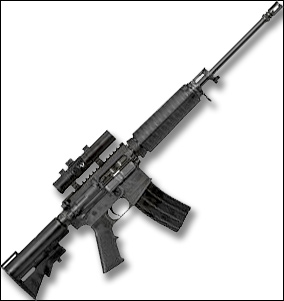Three key points are notable from a new nationwide gun control survey.
First, the number of people who believe that controlling gun ownership is more important than protecting the right of Americans to own guns has changed since the Sandy Hook Elementary School tragedy, driven by the event itself, the massive amount of media attention and the attention given to it by politicians — but not by a great degree.
Second, gender is the key driver in gun control politics.
Third, the political party breakdown reports some surprising numbers.
The Pew Research Center for the People & Press, in association with Princeton Survey Research Associates International, conducted an in-depth nationwide poll (Jan. 9-13; 1,502 adults 18 years of age and older from all 50 states) thoroughly analyzing the public’s position about further restricting gun usage.
Before the massacre at Sandy Hook, according to Pew, those believing that controlling gun ownership is more important than protecting the 2nd Amendment registered a 47:46 percent split in July of 2012 according to the results from a similar Pew-conducted issue poll — an almost even split. In their January 2013 survey — post Sandy Hook — this question broke down to 51:45 percent in favor of those who believe controlling gun ownership is more important. This shows some short-term movement toward more control, but not overwhelmingly so, and is a surprisingly small swing considering all of the media attention paid to the issue during the past few weeks.
Gender starkly divides the gun issue. For example, two-thirds of women (67 percent) favor a ban on semi-automatic weapons versus less than half of men (48 percent). Seventy-three percent of females want the government to establish a federal database to track gun sales while only 61 percent of men hold that same position. In terms of banning high-capacity ammunition clips, 57 percent of women favor such action as opposed to 48 percent of men. When discussing arming more teachers and administration officials within the schools, 47 percent of men would favor such a policy versus just 32 percent of women. Interestingly, though, when asked whether mentally ill people should be prevented from owning a gun, more men than women think that’s a good idea — preventing the mentally ill from owning a gun — though both genders heavily believe so. According to the Pew results, 82 percent of men agree with such a policy versus 79 percent of women.
Since 2000, the number of people expressing a view that the Republican Party does a better job of reflecting the respondents’ own positions on gun control has actually gained substantially. In a similar April 2000 Pew poll, 30 percent responded that the Republicans best represent their personal views while 36 percent answered the Democrats. In the January 2013 survey, 38 percent believe the Republicans most closely reflect their position versus 40 percent who responded for the Democrats.
Poll Results
-
The individual category responses to the poll are listed below:
- By a margin of 85:12 percent, the respondents favor background checks at gun shows and for private gun sales
- Preventing people with mental illness from purchasing weapons: 80 percent favor, 16 percent oppose
- Federal database to track gun sales: 67:30 percent
- Armed security guards/police in schools: 64:32 percent
- Ban on semi-automatic weapons: 58:39 percent
- Ban on assault-style weapons: 55:40 percent
- Ban on high-capacity ammunition clips: 54:42 percent
- Banning online sale of ammunition: 53:44 percent
- More teachers and administrators with guns in schools: 40:57 percent

